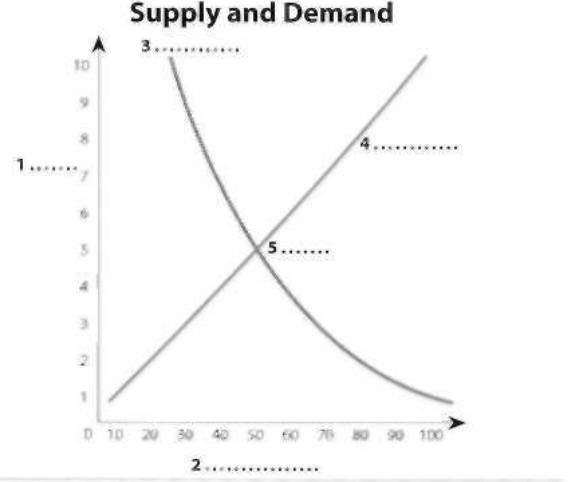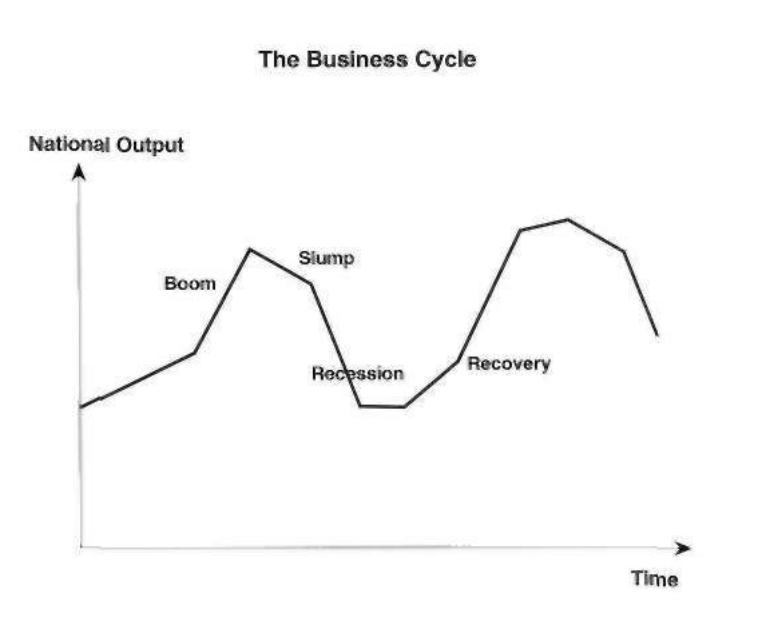
Invest - …
to invest a person with power of attorney - …
to invest money at interest - …
Translate the following into Russian:
We invested in a new washing machine. 2. The military governor has been invested with full authority. 3. The old ruins were invested with romance. 4. By careful investment of his capital he obtained a good income. 5. He has an investment of £500 in oil shares.
Interest – 1)…; 2) …
~ and interest - …
at interest - …
bearing interest - …
cum interest - …
ex-interest - …
interest in a business - …
interest in profits - …
interest on bonds - …
interest on capital - ..
interest payable on delay - …
to draw interest - …
added interest - …
annual interest - …
average interest - …
insurable interest - …
nominal interest - …
monopoly interests - …
mortgage interest -…
Translate in to Russian: 1. He returned a blow with interest. 2. They paid him 6% interest on a loan. 3. When manufacturers demand higher tariffs we may suspect them of having interested motifs. 4. He shared (out) £100 among five men.
Insert prepositions where necessary:
Whether it is as tragedy or farce, the tendency [ 1 ] history to repeat itself is well documented. So it is not surprising that this tenth anniversary [ 2 ] the stock market crash of October 1987 finds some investors [ 3 ] a nervous state of mind. As this newspaper noted [ 4 ] that earlier crash, the 1982-87 bull market “was driven further and faster than any before, not just [ 5 ] economic confidence and cash-rich institutional investors but also by deregulation and wider share ownership.” It was, [ 6 ] other words, very like the present bull market. What, if anything, has changed? What has been learnt?
One thing that has not changed is the world’s love affair [ 7 ] shares. That is because, [ 8 ] the benefit of a decade’s hand sight, the striking thing [ 9 ] the crash of 1987 was how little damage did. On October 19th 1987 the Dow lost a fifth of its value [ 10 ] a single day. Those who sold [ 11 ] the crash therefore lost a lot of money. But this crash was otherwise weirdly different [ 12 ] the ones described in the history books. There was no Depression, Great or Small; there were no miserable queues outside soup kitchens. [ 13 ] the contrary, given the bounce that followed, the fall 1987 looks [ 14 ] the vantage point of 1997 more like a marvelous buying opportunity - not least because [ 15 ] the downward trend of interest rates over much of the following decade. No wonder so many of today’s investors seem almost to long [ 16 ] the next, long-overdue “correction” [ 17 ] Wall Street. Get it over quickly, is a common feeling, the sooner that we can fill our boots [ 18 ] cheap shares.
WATCHING A MOVIE ON THE TOPIC
Capitalism: a Love Story by Michael Moore
Even if you don’t agree with the answers that Michael Moore suggests,
I think you should see this movie.
A.O. Scott – At The Movies
‘Capitalism’ is alternately moving and disheartening, energizing and enervating.
Roger Moore – Orlando Sentinel
Capitalism: A Love Story examines the impact of corporate dominance on the everyday lives of Americans (and by default, the rest of the world). The film moves from Middle America, to the halls of power in Washington, to the global financial epicenter in Manhattan. With both humor and outrage, the film explores the question: What is the price that America pays for its love of capitalism? Families pay the price with their jobs, their homes and their savings. Moore goes into the homes of ordinary people whose lives have been turned upside down; and he goes looking for explanations in Washington, DC and elsewhere. What he finds are the all-too-familiar symptoms of a love affair gone astray: lies, abuse, betrayal...and 14,000 jobs being lost every day. Capitalism: A Love Story also presents what a more hopeful future could look like. Who are we and why do we behave the way that we do?
Security footage –
Crutches –
To be evicted –
Foreclosure –
Dead peasant insurance –
Pundit –
Co-determination –
Derivative (financial term) –
Credit default swap –
VP –
Economic bubble (United States housing bubble) –
Bailout –
Coup d’état –
Hedge fund –
Short selling –
Moratorium –
Squatter –
To vacate –
IMPORTANT QUOTES
Michael Moore: Do you have any suggestions for me? Wall Street Professional: Don't make any more movies.
Michael Moore: I refuse to live in a country like this, and I'm not leaving.
Baron Hill (a Democratic member of the United States House of Representatives for Indiana's 9th congressional district) I've got Michael Moore with me. You know who Michael Moore is, don't you? The film director. He's filming me right now.
Rep. Dennis Kucinich (is a Democratic member of the United States House of Representatives): Is this the United States Congress, or the board of directors of Goldman Sachs?
George W. Bush: [speaking at the Manhattan Institute] Capitalism offers people the freedom to choose where they work and what they do. Lady in Restaurant: [reading the classified ads] There isn't anything in here. I'm not going to be a gentlemen's club hire dancer either.
Michael Moore: [Narrating] This is capitalism. A system of taking and giving... mostly taking.
Rich Man: Master! What must I do to have eternal life? Jesus: Go forth and maximize profits.
Israelite: You say the Kingdom of Heaven is at hand. But when exactly will it be? Jesus: When you deregulate the banking industry.
Man with palsy: Please help me. I've been this way for over 20 years. Jesus: I'm sorry. I cannot heal your preexisting condition. He'll have to pay out of pocket.
Schwarzenegger, Arnold: I left Europe four decades ago because of Socialism has killed opportunities there.
Understanding the content:
Why does the director include an encyclopedia Britannica archive video of the Roman Empire?
How did the Florida real estate agent “Condo Vultures” gain profit?
Give the key facts of American history after the WWII which step by step led to the current state of economy.
Moore questions the connection of capitalist theory and religious doctrines. Which conclusion does he make?
What’s the essence of leaked internal Citigroup memo declaring the US a plutonomy?
What does the director mean by saying that “the complex system and terminology are merely there to confuse and "get away with murder"?
Why did the economy need the 2008 bailout? Was it necessary or were there any other alternatives?
What was the political support for the middle class and poor people suffering from the crises?
Personal understanding of content/impressions/conclusions:
Michael Moore is making a number of points on the economic theory and American economy in particular. Do you agree with him or not. Prove your opinion.
What’s the MAIN idea stressed in the movie?
Define the capitalism in your own words.
How does Michael Moore build his case for capitalism as an obscene evil?
What story was most convincing that Moore used to illustrate his opinion of capitalism? Explain in detail.
Do you believe capitalism to be immoral?
Why do you think the vast majority of the US population hates the author and hates this movie in particular? (and they give pretty good reasoning for their strong feelings – what might this be? The first point that “all of his movies are hypocritical”)
Socialism is quite clearly promoted by the director of the movie.
What’s socialism in your opinion? Is it good or evil as Arnold Schwarzenegger says? Why does the European Union promote the social rights and social policies in the first place? Would you have a European socialism or American pure capitalism in your country? Why?
Social rights are the right to health, social security, medical assistance, the right of older people to be protected, etc.
Do you think social security systems should be private or public?
Do you think unemployed should receive support from the state?
The right to work
The right to work is guaranteed, as one of the social and economic rights, in international instruments such as the Universal Declaration of Human Rights (UDHR) (Article 23), the International Covenant on Economic, Social and Cultural Rights (Article 6) and the revised European Social Charter (ESC).
When it recognises the right to work, a state is not committing itself to guaranteeing a job for everyone who wants one; such an obligation could be "unworkable" in practice. Rather, it implies that the state has an obligation to develop economic and social conditions where jobs can be created.
The right to work is important in itself but also insofar as it is a basic condition to secure human dignity. Unless the right to work is guaranteed first, the actual exercise of several other basic rights may be inconceivable.
As a corollary of the right to work comes the right to just (or fair) conditions of work. This right specifically includes the guarantees not to be discriminated against, to receive a fair remuneration and paid holidays as well as to have reasonable working hours and a safe and healthy working environment that safeguards a person's physical and mental well-being. These guarantees are given in an attempt to make sure that workers begin and continue their working life in decent conditions. Work should not become an intolerable burden or an end to itself; it should be a means to ensure that at least primary needs such as food, clothing, housing and education, are met.
Employment: A Youth Perspective
Having a job implies a lot more than having means to support oneself. It is also a tool for life experience. Through employment, individuals (particularly young people) develop many skills, ranging from basic technical skills to personal skills.
Unemployment and bad working conditions are part of the complex interrelated issues creating obstacles to people's full development and to their maintaining their inherent dignity. Some examples of these consequences include the inability of the unemployed to afford adequate living conditions for themselves and their dependants, the potential creation of a large number of black market jobs decreasing workers' security and ability to protect their rights, and the need for a large social security scheme to be created in order to provide assistance to the unemployed.
The transition from school to work is a crucial stage for young people in their personal and professional development throughout adult life. The consequences of being unemployed at young ages can be serious. Youth unemployment is often associated with social problems such as violence, crime, suicide and abuse of alcohol and drugs.
Unemployment rates amongst young people are often higher than amongst adults. This difference can be wide or narrow, depending on the specific context of the country.
Various reasons explain the high incidence of unemployment among young people: segmentation of the labour market; technical and organisational changes that have created a demand for higher qualifications; and the labour market crisis which has meant tougher conditions for unemployed workers.
Trade unions, working for the workers
The history of trade unions is a very long one. The rights of workers have undoubtedly improved even if only gradually and trade unions have played a crucial role in this process.
Trade unions are associations of employees (there are also associations of employers) and their main objective is to represent the employees' interests to the employers. The right to form and join a trade union is a fundamental human right. A well functioning and respected trade union movement is often a good indicator of democracy and standards of human rights.
Besides playing a role in the fight for better working conditions, trade unions have had (and continue to have) a key role in the building of social movements and the developing of social changes.
The role of trade unions has been very varied across Europe. In some countries, where fascist and communist regimes were in place, trade unions were overtaken or created by state authorities and the political elite and turned into a tool for their oppressive regimes. As a result of this historical reality, many people are sceptical of the role that trade unions can play, and only lately have the workers from these countries started to recognize the positive role of trade unions in the fight for protecting their rights. Other differences exist across Europe, especially regarding the role and organization of trade unions. In most countries, trade unions are organised in confederations.
Youth and trade union membership
Over recent years, trade unions in many countries have seen a decrease in youth membership. Many trade unions have been slow to respond to the changes experienced by young people and have sometimes failed to formulate an agenda that attracts them in sufficient numbers to replace the traditional membership that has been lost. Consequently, many unions are now developing a work agenda that takes into account the needs and the reality of young workers as well as appropriate structures to deal with this sector. Some have established youth committees, which is the case of the ETUC and the ICFTU - the International Confederation of Free Trade Unions.
Are you a member of a trade union? Have you ever been?
LISTENING COMPREHENSION 1
Before you listen discuss the following:
If you live in a modern economy, life is quite easy.
Before the Industrial Revolution, life was much harder.
Industrial Revolution in modern history, the process of change from an agrarian, handicraft economy to one dominated by industry and machine manufacture. This process began in England in the 18th century and from there spread to other parts of the world. Although used earlier by French writers, the term Industrial Revolution was first popularized by the English economic historian Arnold Toynbee (1852-83) to describe England’s economic development from 1760 to 1840. Since Toynbee’s time the term was more broadly applied.
In what ways was life more difficult?
Listen to someone talking about life before the industrial revolution. Which of these things are mentioned? You will listen to the record only once.
1 length of life
2 housing
3 illness
4 work
5 food
6 having children
Match the description with the numbers.
-
1 life expectance
A about 250
2 number of children who died before they reached five years old
B 1 in 10
3 number of women who died when they were giving birth
C 28
4 years since Industrial Revolution
D 1 in 3
LISTENING COMPREHENSION 2
Pre-listening tasks.
Why do you think gold is expensive?
What might be the reason that so many electrical goods are quite cheap now?
Complete each sentence with the word from the box:
-
applies available confusing curve demand exception impressive increase law limited set shift taxes
Some of the puzzles in this book are really………… .
Newton’s ……………… of gravity explains why things fall towards the earth.
There’s a lot of ……………… for organic fruit and vegetables these days.
When you throw a ball, it follows a ………………… back down to earth.
Gold is expensive because there is only a very ……………….. supply.
When a company stops making a product, it isn’t …………………. any more.
Normally I arrive at work at 8 am, but Thursday is an ………………….. .
This rule ………………….. to everyone in the school, even teachers.
Everyone who earns a salary must pay …………….. to the government.
There has been a ……………….. in public opinion about the environment recently.
There has been a huge ……………….. in demand for air conditioners due to the hot weather.
Prices have been ………………… too high and nobody can afford the goods.
I’ve found the work you’ve managed to do very …………………. . Well done!
The Law of Demand
Economies can often be very confusing. Econometric formulas and impressive charts are sometimes impossible to understand. Thankfully though, some economic ideas are completely obvious. One of these ideas is the law of demand. Economists are always disagreeing with each other, but the law of demand is the only thing they all agree on. They all agree on it because it makes sense even to non-economists like you and me.
Demand is how much of the same good or service people would like to buy. The law of demand says that demand for something falls as its price rises. Economists show this concept with the demand curve which you can see in figure 1.

The reason why the law of demand works is quite obvious: the money we have is limited. If something becomes more expensive, we will have less money available to spend on our other needs. If a product or service is not a necessity, we will decide to buy less of it.
Most rules have exceptions, but economists agree that there are very few exceptions to the law of demand. It even applies to the basic necessities like water. When water becomes more expensive, people find ways to use less. When the government put higher taxes on petrol, people try not to use their cars so often. The fall in demand might be very small, but it is real.
So price has an effect on demand, but the strength of the effect varies. The strength of the price / demand relationship is called price elasticity. Economists use a simple econometric formula to measure price elasticity for a certain product in a particular market. This helps government and companies set prices at the correct level for a particular time and plan price increases.
Don’t forget thought that other things affect demand apart from price. During a very cold winter, demand for heating fuel like gas or coal will rise at any price. If the winter is unusually warm, then the demand for fuel will fall. Economists say that these situations cause a shift in the demand curve. You can see this in figure 2.

In figure 2, the curve is still in the same shape because price still has the same effect on demand. However, something else has caused a general increase of demand at all prices. A rise or fall in people’s incomes, fashion, climate and many other things can influence demand in this way.
Decide whether these statements are true or false:
The law of demand is easy to understand.
The law of demand says that when people want more of something, its price rises.
There are no exceptions to the law of demand.
Price elasticity shows how much prices change when demand changes.
There are many reasons why people decide to buy something, not only price.
A shift in demand changes the shape of the demand curve.
Listening.
The graph below shows one of the basic relationships in economics: supply and demand.
Label the diagram with the words form the box:
amount bought and sold demand curve equilibrium point price supply curve |

Apart from price, what other things affect the demand for a product or service?
If you were a producer, how would you react to increases, or the opposite – decreases in demand?
What products or services are most in demand in your country now?
UNIT 5. BUSINESS AND CULTURAL IMPERIALISM









Do you recognize the companies brand logos and mottos above? What products are the companies most famous for? Do you buy products from these companies? Are there any of these companies you don’t buy from? Why?
STRATEGIC VOCABULARY
Retailer –
Franchising –
Utilities –
Business acumen –
Interim management –
Revenue shortfall –
Electronic colonialism –
Cultural cringe –
Hegemony –
What is business? What’s the purpose of the business existence?
Who owns the business?
What types of businesses do you know?
How do you think business is usually operated?
What’s the meaning of the term imperialism?
LISTENING COMPREHENSION 1
Before you listen look at the photo below and answer these questions:
What country is this?

What do you know about its economy?
What countries are sometimes called the East Asian Tigers. Do you know why?
Which of the things listed in the listening exercise helped the East Asian Tigers to grow?
Now listen and tick the things that helped the East Asian Tigers to grow:
spending on education
cuts in welfare benefits for unemployed
high rate of savings
high rate of local consumption
exports to richer countries
non-democratic governments
democratic governments
good relation between management and workers
strict management rule
FOR YOU TO KNOW
Imperialism is the seizure of a country or territory by a stronger country. The stronger country dominates the social, economic, and political life of the weaker nation. There are several causes of imperialism. These include economic motives, nationalism, balance of power, and Social Darwinism. One of the major economic motives for imperialism was the Industrial Revolution. It created the insatiable demand for raw materials and new markets. Another cause of imperialism was nationalism. European nations wanted to demonstrate their power and prestige to the rest of the world. A third cause of imperialism was balance of power. European nations were forced to acquire new colonies to achieve the balance with their neighbors. For example, if France acquired territory in Africa, Spain would do the same. The final cause for imperialism was Social Darwinism. Europeans believe they have the right and duty to bring the results of their progress to others. This was reinforced by the poem by Rudyard Kipling “The White Man’s Burden”.
The types of imperialism include: colony, protectorate, sphere of influence, economic imperialism.
A colony is a country or territory governed internally by a foreign power. (Somaliland in East Africa was a French colony.)
A protectorate is a country with its own internal government but under the control of an outside power. (Britain established a protectorate over the Niger River delta.)
Sphere of influence is an area in which an outside power claims exclusive investment or trading privileges. (Liberia was under the sphere of influence of the United States.)
Economic imperialism is an independent but less-developed country controlled by private business interests rather than other governments. (the Dole Fruit Company controlled pineapple trade in Hawaii.)
Why interest in Africa?
Interest for Africa began recently enough when in the late 1860s David Livingstone – a missionary from Scotland – travelled deep into central Africa to promote Christianity. Several years passed with no word from him at all. An American newspaper sent a reporter to find him. In 1871 he found him on the shores of the lake Tanganyika.
The reporter, H.M. Stanley, would write articles about his journey in trying to find him. His famous greeting “Dr. Livingstone, I presume” made headlines around the world.
After hearing stories about Dr. Livingstone, King Leopold II of Belgium commissioned Livingstone to obtain land in the Congo for him. King Leopold also sent emissaries to establish trade with Africans in the Congo. This helped sparked interest from other nations to explore Africa.
The Europeans had many advantages when they came to conquering Africa. First of all, they had better weapons (guns vs spears & clubs). Secondly they were able to control a conquered area more easily. This was with the invention of steamboat. They also built railways, and they had cable lines for telegraph. And this all helped communications from colony to colony. In addition, the drug quinine developed in 1829 protected Europeans from being infected from malaria. This allowed Europeans to travel more freely in Africa. Finally, Europeans learned to play rival groups against each other.
The discovery of gold and diamonds in Africa increased European interest. In fact, competition was so intense that 14 nations met at the Berlin Conference in 1884-1885 to help prevent was over Africa. Unfortunately, there was little regard or representation for native Africans or little thought about ethnic or Linguistic groups when the divisions were made.
Despite the Berlin Conference to prevent conflict there was a major conflict in South Africa – this is known as the Boer War. It was between the British and Dutch settlers who were known as the Boers. The discovery of gold and diamond in southern Africa made this area very tempting to the British. The Boers eventually took up arms up against the British. The British won the war and the Boers joined in the Union of South Africa.
The negative effects of the legacy of the colonial rule on Africa include loss control of their land, diseases, breakdown of their traditional culture, artificial boundaries that divided or combined groups unnaturally and they still create problems today, and, finally, identity problems, because of the two cultures.
The positive effect of the legacy of the colonial rule on Africa reduced local warfare, improved sanitation, provided hospitals and schools, which helped to increase lifespan and provided higher literacy rates. There was also an economic expansion in which African products became more valuable. The infrastructure of Africa was also improved with the building of railroads, dams, telephone and telegraph lines.
Why Muslim lands?
World powers were attracted to the lands in the Middle East for geopolitical reasons. Geopolitics is an interest in or taking of land for its strategic location. These areas provided access to the Mediterranean Sea and the Atlantic Ocean trade routes. Discovery of oil around 1900 in Persia (Iran) also made this area very attractive. The oil was valuable to help with the machines of the Industrial Revolution.
Two major countries had major interest in the Muslim lands for the geopolitical reasons were Britain and Russia. Russia had an interest in the area for warm water ports and of course the trade routes. Britain had interest in the area for the oil needed for machines of the Industrial Revolution, the resources to help make items of the Industrial Revolution and of course the trade routes to help sell their goods.
Both Britain and Russia battled about Muslim lands in Central Asia. This became known as the Great Game. The main country that they battled over was India because of the natural resources. Afghanistan became the centre of their struggle. Eventually Britain retained control over India, and Britain and Russia signed peace agreement with Afghanistan.
Both Russia and Britain wanted to bring Persia under its control. Russia was especially interested in gaining access to the Persian Gulf and the Indian Ocean. Britain was interested in Persia to acquire Afghanistan to use it as a buffer between India and Russia. In 1857, Persia resisted British demands but was forced to give up all claims to Afghanistan. Britain’s interests in Persia increased greatly after the discovery of oil there in 1908. Then after internal unrest in 1907 Russia and Britain took over the country and divided it into spheres of influence. They exercised economic control over Persia.
The French originally set out to build the Suez Canal in 1859. However, Britain soon became jealous because of the potential impact the shortcut between the Mediterranean and the Red Seas could have on trade with its Indian colony. In 1875, the British wrestled financial control of the Suez Canal away from the French, and eventually made all of Egypt a protectorate in 1882.
READING COMPREHESION 1
Look at the chart and which shows the business or trade cycle and discuss the following questions:
What do you understand from the chart?
What is happening to the economy at each stage?

Complete each sentence with a word or phrase from the box.
-
bankrupt current debt inevitable lay off pay off put up reasonable
secure shrink stages turnover
Each month I put 100 euros into the bank to ……………….. my loan.
If you feel ……………………….. about your job, you don’t think there’s a danger of losing.
In Britain if it’s sunny in the morning, rain is ……………. later!
A company’s ………………….. is how much money it spends and earns each year.
The ……………….. price of oil is unbelievable.
Painting the body is one of the final ……………………….. of manufacturing a car.
………………….. prices are prices you think are fair.
If you wash some clothes in very hot water, they …………… .
The opposite of taking on staff is to ……………….. staff.
If a company goes ……………. it cannot pay back the money it owes and must close down.
I have a large ……………………. and I have to pay back a lot of money every month.
Farmers have …………………… their prices so the cost of fruit and vegetables has increased.
The Business Cycle
In the long term, over many years, an economy will grow at a steady rate. However, the climb up the hillside of economic growth is actually quite rocky. Long-term is made up of many short-term steps. Each short-term step may last for five or ten year. Over this short-term period the economy goes through a cycle of growth and recession. This is the trade or business cycle, and it has four stages: boom, slump, recession and recovery.
During a boom, everything is good. Demand for goods and services is high and business is going well. To meet demand, companies need to take on more staff so unemployment is low. Confidence is in the air! Consumers feel confident about spending because their jobs seem secure. What’s more, interest rates are reasonable, so people take our loans and use their credit cards. Low interest rates also encourage companies to invest in new capital, and businesses grow. Governments are happy too, because tax revenues are increasing. However, the government has to be careful. Boom economies are always in danger of overheating. Demand-pull or cost-push inflation will eventually bring the good times to an end.
When the slump comes, the economy continues to grow, but not so fast. Once inflation starts to rise, confidence falls. The government have probably put up interest rates to slow down borrowing. People with mortgages have to spend more money to pay off their debt, so they have less to spend on other things. Higher interest rates discourage business investment. Things are moving slowly, and people just hope that the economy will improve again. But will it?
If the government haven’t acted quickly enough, its fiscal and monetary policy changes may be too late. In this case, recession is inevitable. Some economists say a recession exists when there is no growth at all, and the economy actually shrinks. Whatever it is, a recession is bad news. Companies have to reduce costs because turnover is so low. The first thing they do is to lay off staff. If the recession is very bad, some companies may even go bankrupt and close. When this happens, thousands of workers may lose their jobs. As unemployment rises, the government needs to spend more on providing unemployment benefit for those who are out of work. In the worst recessions, these conditions can last for a number of years.
Eventually, with good government policy and a demand for goods or services from healthier economies abroad recovery will come. Slowly confidence, confidence returns, investment grows and the cycle begins again.
Answer these questions:
What is the economic growth like in the long run?
What is the economic growth like in the short run?
Why are businesses and consumers confident during a boom?
Why are mortgage repayments often higher during a slump?
How do companies try to save money during a recession?
What can help an economy recover?
LISTENING COMPREHENSION 2
How does the stage of the business cycle affect ordinary people?
Now listen to these people. What part of the business cycle are they in? Match the people with the stage.
-
SPEAKER 1
A boom
SPEAKER 2
B slump
SPEAKER 3
C recession
SPEAKER 4
D recovery
WHAT DO YOU THINK?
Is economic growth always good?
What are the negative results of economic growth (eg. pollution, destruction of environment)?
ROLE PLAY
Work in groups of three. Each of you should take one of the following roles.
Imagine that the economy has gone into a recession
STUDENT 1 the Chancellor: explain to the others why the country is in recession and what you plan to do about it.
STUDENT 2 chief director of one of the country’s largest industries: you should tell the chancellor what problems the recession is causing you. Tell the Chancellor what you want him/her to do.
STUDENT 3 leader of workers’ union: you should tell the chancellor what problems the recession is causing you. Tell the Chancellor what you want him/her to do.
READING COMPREHENSION 3
Cultural Imperialism: An American Tradition by Julia Galeota
Julia Galeota of McLean, Virginia, is seventeen years old. This essay placed first in the thirteen-to-seventeen-year-old age category of the 2004 Humanist Essay Contest for Young Women and Men of North America.
Travel almost anywhere in the world today and, whether you suffer from habitual Big Mac cravings or
cringe at the thought of missing the newest episode of MTV’s The Real World, your American tastes can be satisfied practically everywhere. This proliferation of American products across the globe is more than mere accident. As a byproduct of globalization, it is part of a larger trend in the conscious dissemination of American attitudes and values that is often referred to as cultural imperialism. In his 1976 work Communication and Cultural Domination, Herbert Schiller defines cultural imperialism as:
the sum of the processes by which a society is brought into the modern world system, and how its dominating stratum is attracted, pressured, forced, and sometimes bribed into shaping social institutions to correspond to, or even to promote, the values and structures of the dominant center of the system.
Thus, cultural imperialism involves much more than simple consumer goods; it involves the dissemination of ostensibly American principles, such as freedom and democracy. Though this process might sound appealing on the surface, it masks a frightening truth: many cultures around the world are gradually disappearing due to the overwhelming influence of corporate and cultural America.
The motivations behind American cultural imperialism parallel the justifications for U.S. imperialism throughout history: the desire for access to foreign markets and the belief in the superiority of American culture. Though the United States does boast the world’s largest, most powerful economy, no business is completely satisfied with controlling only the American market; American corporations want to control the other 95 percent of the world’s consumers as well. Many industries are incredibly successful in that venture. According to the Guardian, American films accounted for approximately 80 percent of global box office revenue in January 2003. And who can forget good old Micky D’s? With over 30,000 restaurants in over one hundred countries, the ubiquitous golden arches of McDonald’s are now, according to Eric Schlosser’s Fast Food Nation, “more widely recognized than the Christian cross.” Such American domination inevitably hurts local markets, as the majority of foreign industries are unable to compete with the economic strength of U.S. industry. Because it serves American economic interests, corporations conveniently ignore the detrimental impact of American control of foreign markets.
Corporations don’t harbor qualms about the detrimental effects of “Americanization” of foreign cultures, as most corporations have ostensibly convinced themselves that American culture is superior and therefore its influence is beneficial to other, “lesser” cultures. Unfortunately, this American belief in the superiority of U.S. culture is anything
but new; it is as old as the culture itself. This attitude was manifest in the actions of settlers when they first arrived on this continent and massacred or assimilated essentially the entire “savage” Native American population. This attitude also reflects that of the late nineteenth-century age of imperialism, during which the jingoists attempted to fulfill what they believed to be the divinely ordained “manifest destiny” of American expansion. Jingoists strongly believe in the concept of social Darwinism: the stronger, “superior” cultures will overtake the weaker, “inferior” cultures in a “survival of the fittest.” It is this arrogant belief in the incomparability of American culture that characterizes many of our economic and political strategies today.
It is easy enough to convince Americans of the superiority of their culture, but how does one convince the rest of the world of the superiority of American culture? The answer is simple: marketing. Whether attempting to sell an item, a brand, or an entire culture, marketers have always been able to successfully associate American products with modernity in the minds of consumers worldwide. While corporations seem to simply sell Nike shoes or Gap jeans (both, ironically, manufactured outside of the United States), they are also selling the image of America as the land of “cool.” This indissoluble association causes consumers all over the globe to clamor ceaselessly for the same American products.
Twenty years ago, in his essay “The Globalization of Markets,” Harvard business professor Theodore Levitt declared, “The world’s needs and desires have been irrevocably homogenized.” Levitt held that corporations that were willing to bend to local tastes and habits were inevitably doomed to failure. He drew a distinction between weak multinational corporations that operate differently in each country and strong global corporations that handle an entire world of business with the same agenda.
In recent years, American corporations have developed an even more successful global strategy: instead of advertising American conformity with blonde-haired, blue-eyed, stereotypical Americans, they pitch diversity. These campaigns - such as McDonald’s new international “I’m lovin’ it” campaign—work by drawing on the United State’s history as an ethnically integrated nation composed of essentially every culture in the world. An early example of this global marketing tactic was found in a Coca Cola commercial from 1971 featuring children from many different countries innocently singing, “I’d like to teach the world to sing in perfect harmony/I’d like to buy the world a Coke to keep it company.” This commercial illustrates an attempt to portray a U.S. goods as a product capable of transcending political, ethnic, religious, social, and economic differences to unite the world (according to the Coca-Cola Company, we can achieve world peace through consumerism).
More recently, Viacom’s MTV has successfully adapted this strategy by integrating many different Americanized cultures into one unbelievably influential American network (with over 280 million subscribers worldwide). According to a 1996 “New World Teen Study” conducted by DMB&B’s Brain Waves division, of the 26,700 middle-class teens in forty-five countries surveyed, 85 percent watch MTV every day. These teens absorb what MTV intends to show as a diverse mix of cultural influences but is really nothing more than manufactured stars singing in English to appeal to American popular taste.
If the strength of these diverse “American” images is not powerful enough to move products, American corporations also appropriate local cultures into their advertising abroad. Unlike Levitt’s weak multinationals, these corporations don’t bend to local tastes; they merely insert indigenous celebrities or trends to present the facade of a customized advertisement. MTV has spawned over twenty networks specific to certain geographical areas such as Brazil and Japan. These specialized networks further spread the association between American and modernity under the pretense of catering to local taste. Similarly, commercials in India in 2000 featured Bollywood stars Hrithik Roshan promoting Coke and Shahrukh Khan promoting Pepsi (Sanjeev Srivastava, “Cola Row in India.” BBC News Online). By using popular local icons in their advertisements, U.S. corporations successfully associate what is fashionable in local cultures with what is fashionable in America. America essentially samples the world’s cultures, repackages them with the American trademark of materialism, and resells them to the world.
Critics of the theory of American cultural imperialism argue that foreign consumers don’t passively absorb the images America bombards upon them. In fact, foreign consumers do play an active role in the reciprocal relationship between buyer and seller. For example, according to Naomi Klein’s No Logo, American cultural imperialism has inspired a “slow food movement” in Italy and a demonstration involving the burning of chickens outside of the first Kentucky Fried Chicken outlet in India. Though there have been countless other conspicuous and inconspicuous acts of resistance, the intense, unrelenting barrage of American cultural influence continues ceaselessly.
Compounding the influence of commercial images are the media and information industries, which present both explicit and implicit messages about the very real military and economic hegemony of the United States. Ironically, the industry that claims to be the source for “fair and balanced” information plays a large role in the propagation of American influence around the world. The concentration of media ownership during the 1990s enabled both American and British media organizations to gain control of the majority of the world’s news services. Satellites allow over 150 million households in approximately 212 countries and territories worldwide to subscribe to CNN, a member of Time Warner, the world’s largest media conglomerate. In the words of British sociologist Jeremy Tunstall, “When a government allows news importation, it is in effect importing a piece of another country’s politics - which is true of no other import.” In addition to politics and commercials, networks like CNN also present foreign countries with unabashed accounts of the military and economic superiority of the United States.
The Internet acts as another vehicle for the worldwide propagation of American influence. Interestingly, some commentators cite the new “information economy” as proof that American cultural imperialism is in decline. They argue that the global accessibility of this decentralized medium has decreased the relevance of the “core and periphery” theory of global influence. This theory describes an inherent imbalance in the primarily outward flow of information and influence from the stronger, more powerful “core” nations such as the United States. Additionally, such critics argue, unlike consumers of other types of media, Internet users must actively seek out information; users can consciously choose to avoid all messages of American culture. While these arguments are valid, they ignore their converse: if one so desires, anyone can access a wealth of information about American culture possibly unavailable through previous channels. Thus, the Internet can dramatically increase exposure to American culture for those who desire it.
Fear of the cultural upheaval that could result from this exposure to new information has driven governments in communist China and Cuba to strictly monitor and regulate their citizens’ access to websites (these protectionist policies aren’t totally effective, however, because they are difficult to implement and maintain). Paradoxically, limiting access to the Internet nearly ensures that countries will remain largely the recipients, rather than the contributors, of information on the Internet.
Not all social critics see the Americanization of the world as a negative phenomenon. Proponents of cultural imperialism, such as David Rothkopf, a former senior official in Clinton’s Department of Commerce, argue that American cultural imperialism is in the interest not only of the United States but also of the world at large. Rothkopf cites Samuel Huntington’s theory from The Clash of Civilizations and the Beginning of the World Order that, the greater the cultural disparities in the world, the more likely it is that conflict will occur. Rothkopf argues that the removal of cultural barriers through U.S. cultural imperialism will promote a more stable world, one in which American culture reigns supreme as “the most just, the most tolerant, the most willing to constantly reassess and improve itself, and the best model for the future.” Rothkopf is correct in one sense: Americans are on the way to establishing a global society with minimal cultural barriers. However, one must question whether this projected society is truly beneficial for all involved. Is it worth sacrificing countless indigenous cultures for the unlikely promise of a world without conflict?
Around the world, the answer is an overwhelming “No!” Disregarding the fact that a world of homogenized culture would not necessarily guarantee a world without conflict, the complex fabric of diverse cultures around the world is a fundamental and indispensable basis of humanity. Throughout the course of human existence, millions have died to preserve their indigenous culture. It is a fundamental right of humanity to be allowed to preserve the mental, physical, intellectual, and creative aspects of one’s society. A single “global culture” would be nothing more than a shallow, artificial “culture” of materialism reliant on technology. Thankfully, it would be nearly impossible to create one bland culture in a world of over six billion people. And nor should we want to. Contrary to Rothkopf’s (and George W. Bush’s) belief that, “Good and evil, better and worse coexist in this world,” there are no such absolutes in this world. The United States should not be able to relentlessly force other nations to accept its definition of what is “good” and “just” or even “modern.”
Fortunately, many victims of American cultural imperialism aren’t blind to the subversion of their cultures. Unfortunately, these nations are often too weak to fight the strength of the United States and subsequently to preserve their native cultures. Some countries - such as France, China, Cuba, Canada, and Iran - have attempted to quell America’s cultural influence by limiting or prohibiting access to American cultural programming through satellites and the Internet. However, according to the UN Universal Declaration of Human Rights, it is a basic right of all people to “seek, receive, and impart information and ideas through any media and regardless of frontiers.” Governments shouldn’t have to restrict their citizens’ access to information in order to preserve their native cultures. We as a world must find ways to defend local cultures in a manner that does not compromise the rights of indigenous people.
The prevalent proposed solutions to the problem of American cultural imperialism are a mix of defense and compromise measures on behalf of the endangered cultures. In The Lexus and the Olive Tree, Thomas Friedman advocates the use of protective legislation such as zoning laws and protected area laws, as well as the appointment of politicians with cultural integrity, such as those in agricultural, culturally pure Southern France. However, many other nations have no voice in the nomination of their leadership, so those countries need a middle-class and elite committed to social activism. If it is utterly impossible to maintain the cultural purity of a country through legislation, Friedman suggests the country attempt to “glocalize,” that is:
to absorb influences that naturally fit into and can enrich [a] culture, to resist those things that are truly alien and to compartmentalize those things that, while different, can nevertheless be enjoyed and celebrated as different.
These types of protective filters should help to maintain the integrity of a culture in the face of cultural imperialism. In Jihad vs. McWorld, Benjamin Barber calls for the resuscitation of nongovernmental, non-capitalist spaces - to the “civic spaces” - such as village greens, places of religious worship, or community schools. It is also equally important to focus on the education of youth in their native values and traditions. Teens especially need a counterbalance images of American consumerism they absorb from the media. Even if individuals or countries consciously choose to become “Americanized” or “modernized,” their choice should be made freely and independently of the coercion and influence of American cultural imperialism.
The responsibility for preserving cultures shouldn’t fall entirely on those at risk. The United States must also recognize that what is good for its economy isn’t necessarily good for the world at large. We must learn to put people before profits. The corporate and political leaders of the United States would be well advised to heed these words of Gandhi:
I do not want my house to be walled in on all sides and my windows to be stuffed. I want the culture of all lands to be blown about my house as freely as possible. But I refuse to be blown off my feet by any.
The United States must acknowledge that no one culture can or should reign supreme, for the death of diverse cultures can only further harm future generations.
What are the meanings of the words in italics?
Give the summery of the essay.
Make an essay review according to a given plan.
Why do you think the US is blamed more than any other country in the world for being imperialistic? Why not the UK? Or Europe in general?
Can we call Russia as an imperialistic empire? In the past? At the moment?
Write the essay describing your opinion on the topic: Russia is an Imperialistic Influence to Former Soviet Nations. Prove your point of view.
UNIT 6. POVERTY IN CONTEMPORARY WORLD
Key date
17 October International Day for the Eradication of Poverty
Poverty is a worldwide problem and it is increasing. We tend to connect it with places like Sub-Saharan Africa, Asia and Latin America, but in Europe poverty affects millions of people, too. Of the European Union's 400 million inhabitants, 60 million live below the poverty line (which is defined as 50% of a country's average income), and 2.7 million are homeless. In Spain, 20% of the population live under this poverty line and 4.5 % live in extreme poverty. In the United Kingdom, one third of children grow up in poverty.
Poverty in Transition
" (...) almost all the former socialist countries have experienced an important increase in poverty during the transition period. Nevertheless, poverty is not an absolutely new phenomenon and it is not due solely to the transition process; poverty existed before in the Soviet Union and the region, although for political and ideological reasons it was not recognised. One social group that was not previously affected by poverty is public sector workers, who have seen their salaries and living standards decrease dramatically. Unemployment is one of the main causes of poverty in the region." UNDP, 2001
Poverty in the world
"In rich countries, fewer than one child in one hundred fails to reach its fifth birthday, while in the poorest countries as many as a fifth of children do not. Also, while in rich countries fewer than 5% of all children under five are malnourished, in poor countries, as many as 50% are." The World Bank, 2000
Defining poverty
Absolute poverty is based on what is considered to be a minimum requirement for survival. By this definition, it is assumed that there are minimum standards below which people fall into the category of "poor". One of the most frequently used measurements is level of income: where the income of a person or a family falls below a certain level, considered to be the minimum required for a reasonable standard of living, then this person or family is considered poor.
In relative poverty, the status of a specific group is defined and measured in relation to others in the same environment, community or country. Consequently, someone who is considered poor in the developed world may actually have a higher income than someone in a less developed country who is considered well-off. The meaning of poverty depends on the customs, standards and values of each country and region of the world. In this way, there is also a cultural dimension in the perception of what constitutes poverty.
Nowadays, many people recognise that poverty is not necessarily reduced by a country's economic growth. In countries that have experienced economic growth, poverty has not disappeared. Poland, for example, has achieved significant success in the economic sphere, but poverty has still increased.
It is widely accepted that "poverty is a multi-dimensional phenomenon consisting of mental, political, communal and other aspects", together with a material dimension (normally expressed in terms of monetary value). The factors underpinning it may be economic, social, political or environmental. Poverty has many faces: it can be rural or urban, a permanent or temporary state of affairs. Some people may be poor throughout their lifetime, while others may move in and out of poverty. It is not a static condition.
A further important dimension of poverty concerns what is often called the "feminisation of poverty". This means that is there is a prevalence of women among the poor, which is linked, among other things, to gender-biased consequences of poverty. Poverty and human rights
The Vienna Declaration and the Programme of Action adopted during the World Conference on Human Rights in Vienna, Austria, (June 1993) states that "the existence of widespread extreme poverty inhibits the full and effective enjoyment of human rights...especially the economic, social and cultural rights." (Article 14).
It is important to realise that the denial of adequate health care, education, equality, shelter, etc., which are some of the consequences of poverty and social exclusion, impedes access to civil and political rights, which in turn prevents people from claiming their economic, social and cultural rights. This is a clear example of the indivisibility and interdependence of human rights.
The existing international and regional instruments have had a limited impact on the fight against poverty. One reason is that many of these instruments do not include mechanisms to enforce these rights. Another is that, although progress has been made over the last 50 years to develop a human rights framework and the international community has accepted that sustainable human development is not possible without respect for human rights, there is still no express link being made between poverty and human rights. The Universal Declaration of Human Rights and the two International Covenants on Human Rights do refer in their preambles to freedom from want, and the human rights treaties do provide for the right to an adequate standard of living, including sufficient food, clothing and housing.
Final considerations
One of the most common prejudices held about poor people is that they find themselves in this situation because they want to or because they do not work hard enough - implying that they are lazy and irresponsible. This is a way of making the poor bear sole responsibility for their situation; it suggests that society should not be responsible for them and can do nothing about them. This approach runs contrary to a culture of human rights, because it denies those people who find themselves excluded the opportunity to live with dignity and to be a subject of rights. In addition, it conflates the consequences of poverty (altered patterns of behaviour, drug abuse, refusal to work, use of alcohol, etc.) with complex root causes.
To eradicate poverty we should be addressing its roots, not just the immediate needs, and this will require a major political effort especially from states and international organisations: poverty thus has a strong political dimension.
"The fight against poverty is a deeply political issue. Poverty in most societies is about disparities in the distribution of power, wealth and opportunity." UNDP, 2001.
Do you agree with the last statement?
The Fourth World Youth Movement
is part of the Fourth World Movement, an organisation dedicated to the fight against poverty.
www.atd-fourthworld.org
